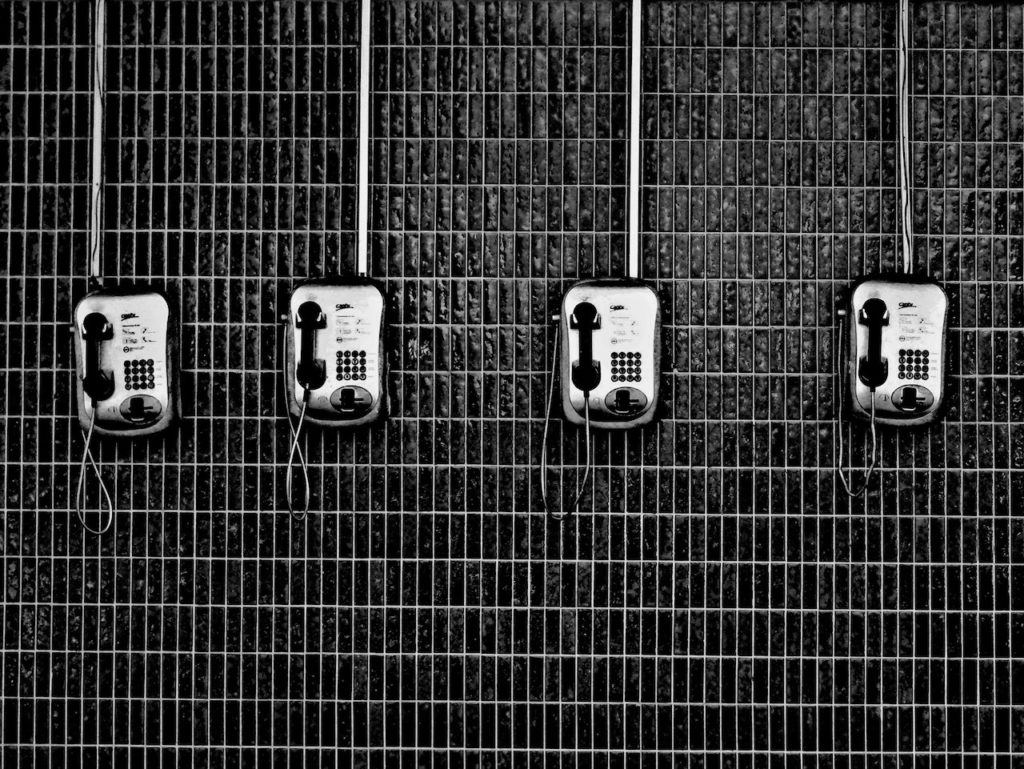Ethical & HIPAA Compliant Decisions for Internet Phone & Secure Email in Your Practice, 2019 Edition
1 CE Credit Hour. Legal-Ethical. Continuing Education Session Replay.
Developed by: Roy Huggins, LPC NCC
Presented By: Roy Huggins, LPC NCC; Liath Dalton
Course Description

You would think that legal-ethical choices for phone and email service would be simple. Unfortunately, the opposite is true. Different ways to manage Internet phone services abound, and the security of email is an ever-evolving thing.
This introductory-level update course for counselors, clinical social workers, marriage and family therapists, and clinical and counseling psychologists will help learners to recognize what they need in phone and email services to maintain HIPAA compliance and uphold ethical standards. The course will cover relevant standards, a simple overview of how the tech applies to the standards, and provide resources for locating services that will help you meet the standards.
Educational Objectives
- Describe what kinds of phone services trigger HIPAA Business Associate relationships with the clinician.
- Describe the administrative and technical measures clinicians must take to use secure email services ethically and in compliance with HIPAA.
- Choose email and phone service products that support HIPAA compliance and ethical decision making.
Syllabus
- How do HIPAA standards and professional ethics relate to phone service and email?
- Ethical standards around transmissions and confidentiality
- HIPAA’s “Transmission Security Standard”
- HIPAA Business Associates
- What are the different kinds of phone service and how do they relate to HIPAA and ethical standards?
- VoIP, or “Internet Phone,” vs. conventional phone service
- Business Associate and phone service
- Softphone apps vs. second line services
- What are the different forms of email and how do they relate to HIPAA and ethical standards?
- The big three: conventional email, TLS-guaranteed email, and escrow email
- How does each form of email increase or reduce confidentiality threats
- Client requests for nonsecure emails
- Business Associates and email services
- How do I locate and evaluate email or phone services that meet my legal-ethical needs?
- Finding and evaluating HIPAA-friendly email services
- Finding and evaluating HIPAA-friendly VoIP services
References
- American Association of Marriage and Family Therapists. (2015). Code of Ethics . Alexandria, VA: Author.
- American Counseling Association. (2014). ACA Code of Ethics. Alexandria, VA: Author.
- American Psychological Association. (2010). American Psychological Association Ethical Principles of Psychologists and Code of Conduct . Washington, DC: Author.
- National Association of Social Workers. (2017). Code of Ethics . Washington, DC: Author.
- National Board for Certified Counselors. (2012). Code of Ethics . Greensboro, NC: Author.
- US Dept. of Health and Human Services. (2006). HIPAA Administrative Simplification . Washington, DC: Author.
Presented/Developed By
 Roy Huggins, LPC NCC, is a counselor in private practice who also directs Person-Centered Tech. Roy worked as a professional Web developer for 7 years before changing paths, and makes it his mission to grow clinicians’ understanding of the Internet and other electronic communications mediums for the future of our practices and our professions.
Roy Huggins, LPC NCC, is a counselor in private practice who also directs Person-Centered Tech. Roy worked as a professional Web developer for 7 years before changing paths, and makes it his mission to grow clinicians’ understanding of the Internet and other electronic communications mediums for the future of our practices and our professions.
Roy is an adjunct instructor at the Portland State University Counseling program where he teaches Ethics, and is a member of the Zur Institute advisory board. He has acted as a subject matter expert on HIPAA, security and clinical use of technology for Counseling licensure boards and both state and national mental health professional organizations. He has co-authored or authored 2 book chapters, and he routinely consults with mental health colleagues on ethical and practical issues surrounding tech in clinical practice. He served for 5 years on the board of the Oregon Mental Health Counselors Association and then the Oregon Counseling Association as the Technology Committee Chair.
He really likes this stuff.
Course Co-Presenters
 Liath Dalton is a Ph.D candidate in Religious Studies. She began her academic career at Reed College and continued her graduate work at the University of Cape Town.
Liath Dalton is a Ph.D candidate in Religious Studies. She began her academic career at Reed College and continued her graduate work at the University of Cape Town.
Liath is the Deputy Director for Person Centered Tech and runs our HIPAApropriateness review program. Through her combination of experience evaluating products for their utility and security in regards to how they can meet risk management needs and providing guidance to members around what product options will best meet their specific practice needs, Liath has an intimate knowledge of both what the practice tech needs are for mental health professionals and what it takes for a product to meet those needs.
Program Notices
Accuracy, Utility, and Risks Statement: The contents of this program are based on publications and reports from the federal Department of Health and Human Services; consultation with experts on HIPAA Security standards and their implementation; and personal study from the program developers. Some interpretation and analysis presented is made by the presenter, in consultation with knowledgeable colleagues and expert consultants. Statements about applications to technology are according to presenter’s understanding of the technology at the time of the program. The presenter may not know how to apply all principles discussed to every technology type or product. This program discusses strategies for complying with HIPAA and covered ethics codes. It may not include information on all applicable state laws. Misapplication of the materials, or errors in the materials, could result in security problems, data breaches, or non-compliance with applicable laws or ethics codes.
Conflicts of Interest: None.
Commercial Support: None.
This course is subject to our cancellation/refund policy and complaint policy.

